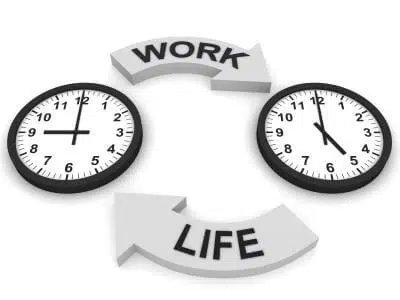The French Minister for Europe and Foreign Affairs, Jean-Yves Le Drian, said on Saturday 18 September 2021 of British leaders: “We know their permanent opportunism” (1). His lively comment was made in the context of the trilateral AUKUS pact, which brings together the United States, the United Kingdom and Australia (2). Announced on 15 September 2021, it led to Australia abandoning the submarine supply contract signed in 2016 with France. The reference to “permanent opportunism” seems both intelligible – we know the selfish realism of an opportunist and we are used to blaming free riders – and paradoxical – it seems unlikely that a person could behave opportunistically in all circumstances. The question has been raised in the social sciences and in philosophy. It is the subject of this article.
1.
Taking advantage of any situation
The definitions of opportunism proposed by dictionaries emphasise the capacity of an agent to take advantage of situations that allow them to make a gain, most often at the expense of others, and without subjecting their conduct to principles, especially those of a moral nature:
“Behaviour of a person who acts according to circumstances and knows how to exploit opportunities; ability to seize all advantageous opportunities” (3);
“The art, policy, or practice of taking advantage of opportunities or circumstances often with little regard for principles or consequences” (4).
It goes without saying that an opportunistic character exercises such skills. But the following definition of the adjective “opportunist,” which includes a distinctly pejorative connotation, adds a temporal dimension:
“If you describe someone as opportunist, you are critical of them because they take advantage of any situation in order to gain money or power, without considering whether their actions are right or wrong” (5).
This description implicitly supports the thesis of the possibility of permanent opportunism. Indeed, “taking advantage of any situation” suggests that the opportunist is constantly on the lookout for opportunities to satisfy their interests, even seeking to be in conditions that will allow them to identify and take advantage of situations of gain.
2.
Psychopaths and Machiavellian characters
In an article on opportunists, Anne Fennimore offers a description of this kind. She points out that the opportunist – a permanent opportunist – is able to operate within organisations and to reach high positions, without appearing to be an opportunist (6). Such a possibility is contrary to the idea that an “invisible hand,” in Fennimore’s words, would tend to exclude them naturally from organisations.
She considers two types of permanent opportunists, whom she calls “natural born opportunists”: psychopaths (who, she points out, have not yet been diagnosed as such, i.e., “subclinical” psychopaths) and Machiavellians.
Both are described using a set of personality traits. For the subclinical psychopath, these are “callousness, manipulation, impulsive thrill-seeking, anti-social behaviours, an erratic lifestyle, being hostile, cynical, greedy, and arrogant” (7).
Machiavellians are more straightforwardly experts in manipulation because they engage in “social conduct that involves manipulating others for personal gain,” their skill going so far as to give them the appearance of caring for others when in reality they “take care while taking advantage.” Like psychopaths, they are described using character traits:
“[They] tend to be callous, to possess a cold and calculating disposition, to devalue ethical behaviour, steal and violate trust, and to use power and influence in self-serving, manipulative ways.”
These descriptions are basically quite common. The characters of the psychopath and the Machiavellian can be found in different typologies, which often aim to draw attention to the danger they pose to organisations and their members. The same is true of the opportunist (8). But what is important here is that the assumption of permanent opportunism is justified by the character – or rather the corruption of character – of certain types of persons.
3.
An opportunist has no integrity
Philosopher Robert Solomon, who has defended a theory of virtues within business ethics, characterises the opportunist first and foremost as a person lacking the virtue of integrity (9). For him, integrity is not exactly a virtue, but rather a “complex of virtues” the function of which being to contribute to the coherence and unity of character.
However, integrity cannot be understood as a reflection of a purely internal cohesion of the self, a mere fidelity to oneself. An opportunist would have integrity in this sense, that is, in a strictly personal sense. But integrity also has a public sense, because it implies a coherence between, on the one hand, an individual’s own beliefs, convictions and values, and, on the other hand, the social world in which they evolve. Because the opportunist uses their environment to achieve their goals, they cannot have integrity in the full sense of the term, both personal and public:
“The opportunist does not usually have any principles that we would readily recognize as ethical, and therefore there may be no standard to which he or she can be faithful. Of course, there is something as a selfish telos or generic goal that the opportunist ends to follow and makes his or her own: ‘Do whatever it takes.’ There is also a modus operandi: ‘Always keep your eyes open and your feet ready.’ None of this indicates principled behavior. But why should such behavior indicate a lack of integrity? Isn’t such a person being particularly true to self? […] But here we see how the public and the personal senses of integrity tend to come together for consistency requires more than fidelity to a single, selfish goal. It also involves coherence and respect for other people. [It] requires fidelity to self in the midst of others and together with them. Integrity is not heightened by hermitage, and the opportunist is in fact an ethical hermit who merely uses others as his or her instruments. But if integrity is in part independence (‘true to self’) it is also the very contrary of using other people to one’s own ends.” (9)
It is because of the corruption of the opportunist’s character that their opportunism is permanent. They devote their life to the satisfaction of their own self-interest, which is their sole objective. They must, however, avoid showing the social world that their mind is absorbed in the realisation of their selfish goal. This is why the opportunist is an actor who constantly plays many roles, including that of the honest person, in order to conceal their true self.
4.
Opportunism is (usually) not permanent
The psychological structure of such a character is a bit embarrassing. One even doubts whether they really exist. Is it conceivable, for example, that they could share the existence of anyone, even if their partner were also an opportunist? In a sense, it is understandable that Fennimore described them using pathological types.
It is useful at this point to refer to the famous definition of opportunism given by the economist Oliver Williamson. One of its features is that it avoids a detailed character-based description, with the notable exception of guile:
“By opportunism I mean self-interest seeking with guile. This includes but is scarcely limited to those more blatant forms, such as lying, stealing, and cheating. Opportunism more often involves subtle forms of deceit. […] More generally, opportunism refers to the incomplete or distorted disclosure of information, especially to calculated efforts to mislead, distort, disguise, obfuscate, or otherwise confuse.” (10)
The guile disposition – “insidious cunning in attaining a goal” (11) – is the only reference to character here. But one can exhibit insidious cunning without embodying this capacity, without being representative of the insidious cunning type. It is notable in this respect that Williamson says little about the moral psychology of the opportunist as such. In his 1975 book, he discusses opportunistic behaviour and inclinations (12), quotes “opportunists” once in his 1985 book (13), and just mentions “opportunistic agents” in his 1993 article (14). It was not his intention to write a moral portrait.
However, in a passage from the 1993 article, Williamson observes that opportunism is not necessarily permanent:
“Most economic agents are engaged in business-as-usual, with little or no thought to opportunism, most of the time. That opportunism does not continuously intrude is partly because many economic agents are well-socialized.”
5.
Latent opportunism
It is naturally delicate to transfer these considerations to the case of a sovereign country like the United Kingdom, which Jean-Yves Le Drian has accused of “permanent opportunism.” It will no doubt be recalled that the rules governing international relations are not of the same nature as those governing individual psychology. Perhaps, in this case, the use of the adjective “permanent” was intended to highlight both an excess of egoism and a violation of common practices, and thus to reveal a hidden truth.
If such an assumption is valid, it was not permanent opportunism in the strict sense. Rather, it was a latent opportunism. This kind of opportunism is more plausible and more frequent than permanent opportunism, and its unveiling in the public space can produce a situation as serious as the revelation of alleged permanent opportunism.
Alain Anquetil
(1) See “Crise des sous-marins : Le Drian dénonce une ‘duplicité’, l’Australie évoque de ‘profondes et sérieuses réserves’,” Le Figaro, 18 September 2021, and “As France escalated its submarine dispute, it decided to go a bit lighter on Britain. Here’s why,” Washington Post, 18 September 2021.
(2) See “Biden announces joint deal with U.K. and Australia to counter China,” Politico, 15 September 2021.
(3) Source: CNRTL.
(4) Source: Merriam Webster.
(5) Source: Collins Dictionary.
(6) A. Fennimore, “Natural born opportunists,” Management Decision, 55(8), 2017, p.1629-1644.
(7) On psychopaths in organisations, see my article “L’importance du contexte dans les études sur les ‘traders psychopathes,” 4 October 2011.
(8) See for example, in relation to the opportunist, E. E. Walley and D. W. Taylor, “Opportunists, champions, mavericks…? A typology of green entrepreneurs,” Greener Management International: The Journal of Corporate Environmental Strategy and Practice, 38, 2002, pp. 31-43, and M. S. Mood, “Opportunists, predators and rogues: The role of local state relations in shaping Chinese rural development,” Journal of Agrarian Change, 5(2), 2005, pp. 217-250.
(9) R. C. Solomon, Ethics and excellence. Cooperation and integrity in business, Oxford University Press, 1993.
(10) O. E. Williamson, The economic institutions of capitalism, New York, The Free Press, 1985.
(11) Source: Collins Dictionary.
(12) O. E. Williamson, Markets and hierarchies, analysis and antitrust, New York, The Free Press, 1975. Quoting the sociologist Erving Goffman, he states that opportunistic behaviour “involves making ‘false or empty, that is, self-disbelieved, threats and promises’ in the expectation that individual advantage will thereby be realized.” (I. Goffman, Strategic interaction, University of Pennsylvania Press, 1969.)
(13) O. E. Williamson, 1985, op. cit. The passage is as follows: “‘High-minded’ organizational forms – those which presume trustworthiness hence are based on nonopportunistic principles – are […] rendered nonviable by the intrusion of unscreened and unpenalized opportunists.”
(14) O. E. Williamson, “Opportunism and its critics,” Managerial and Decision Economics, 14, 1993, pp. 97-107.





